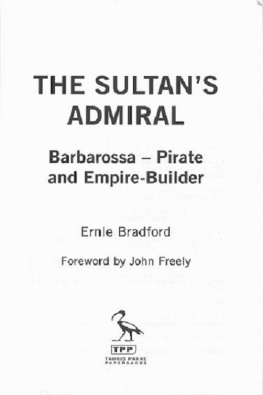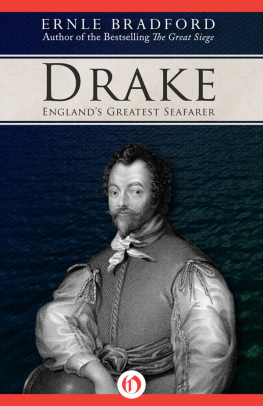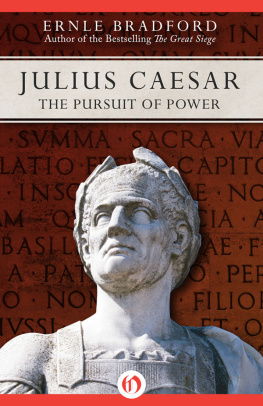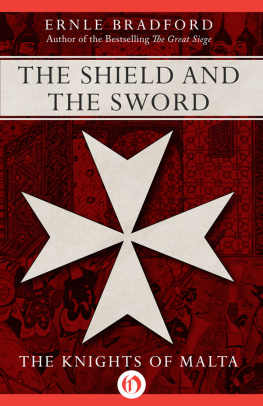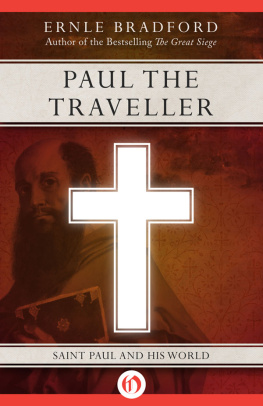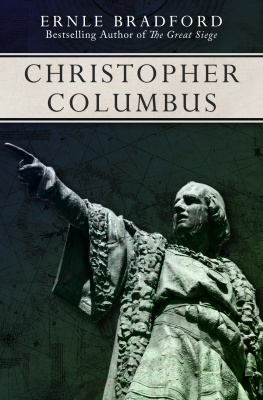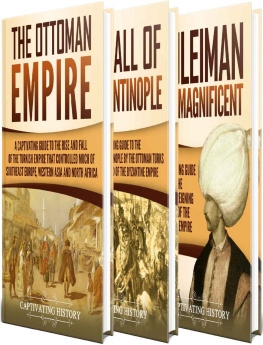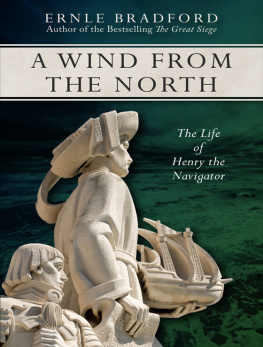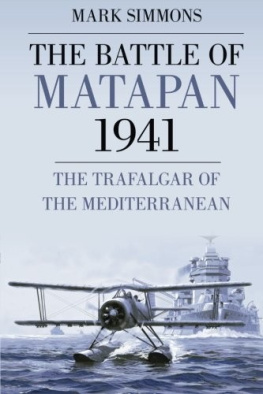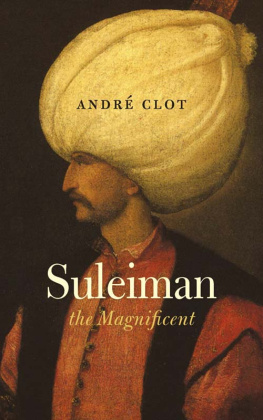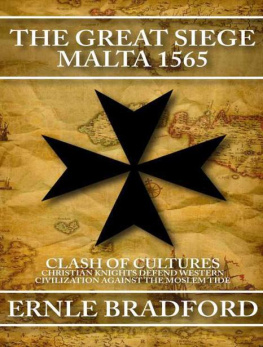FOREWORD
Barbarossa, the famous pirate-admiral, known to the Turks as Hayrettin Pasha, is buried in a domed octagonal tomb in Beshiktash, a suburb of Istanbul on the European shore of the Bosporus. Beside the tomb there is a larger-than-life marble statue of Barbarossa that was erected on the fourth centennial of his death in 1546. Burly and bushy-bearded, dressed in the flowing robes and enormous turban he wore as grand admiral of the Ottoman Navy, he stands imperiously with his right hand on his scimitar. He looks out to sea as if he was still on the bridge of his flagship in the Mediterranean, about to do battle with the infidels.
I first saw Barbarossas statue soon after I arrived in Istanbul in mid-September 1960.1 already knew something about him from the books I had been reading on Ottoman history, but I only learned of his extraordinary life story when I read Ernle Bradfords biography The Sultans Admiral. I have reread it several times since, while writing my own books on Ottoman history, and it was of great help to me for there are very few accessible sources on Barbarossas life, particularly of the years before he emerged as a major historic figure. I was particularly pleased to learn that the book was to be reissued, for it is the only biography, in or out of print, of this singularly important figure in Turkish maritime history and a rattling yam that recalls the exciting tales of swashbuckling pirates I read in my youth.
Born to a Turkish father and Greek mother on the Aegean isle of Lesbos, Barbarossa and his older brother, Aruj, took to piracy in their youth and sought their fortune on the Barbaiy Coast of North Africa, where they carved out a kingdom for themselves in Algeria. After Aruj died in battle against the Spaniards, Barbarossa was invited to Istanbul by Sultan Suleyman the Magnificent, who made him captain-pasha of the Ottoman Navy in 1533. During the following year Barbarossa rebuilt the Turkish fleet and then set off on a series of campaigns in which he ravaged the European coast of the Mediterranean and captured a number of Greek islands, carrying back thousands of captives to be sold in Istanbuls slave market. The climax of Barbarossas career came on 27 September 1538, when he defeated the combined fleets of Venice, Genoa and the Pope in the Ionian Islands off Preveza. This gave the Turks control of the Mediterranean for the next third of a century, enabling Suleymans forces to extend the bounds of the Ottoman Empire from the Danube to the Nile and from Persia to Algiers. After his victory, Barbarossa retired to a pleasure dome on the shores of the Bosporus in Istanbul, where his tomb and statue stand today Bradford notes that the Turkish annals for the year 1546 recorded simply: The King of the Sea is Dead. Emle Bradford joined the British Navy in 1940 at the age of eighteen and served with distinction throughout World War II. After the war he spent much of his time sailing in the Mediterranean, writing numerous books on maritime history and travel, all of them enlivened by his lifelong love of the sea and deep knowledge of its nature. His biography of Barbarossa in particular evokes the tempestuous world of the sixteenth-century Mediterranean, when the fleets of Christianity and Islam were battling one another from the Aegean to the Barbary Coast. Muslim pirates fighting as Warriors for the Faith, warring against slave-trading Defenders of Christ, whose white cross waves on the taffeta standard above their heads, and shines upon various pennants and burgees aloft. Bradford quotes contemporary chroniclers to recreate a lost world that seldom appears in history textbooks, such as the Abbot Diego de Haeddos description of Algiers, capital of Barbarossas Barbary kingdom:
When the Christians with their galleys are in repose, sounding their trumpets in the harbours, and very much at their ease regaling themselves, passing the night and day in banqueting, cards and dice, the Corsairs are traversing the east and west seas, without the least fear and apprehension, as free as absolute sovereigns therof Thus they have crammed most of the houses, the magazines, and all the shops of this Den of Thieves with gold, silver, pearls, amber, spices, drugs, silks, clothes, velvets & c., whereby they have rendered this city the most opulent in the world, insomuch that the Turks call it, not without reason, their India, their Mexico, their Peru.
Barbarossa is relatively unknown in the West, but, as Bradford notes, In the new kingdoms of North Africa his name is still held in the same reverence as that of Nelson in England or John Paul Jones in America. In Turkey he is the subject of many childrens books, and he often appears in cartoon magazines as a cross between a Turkish Francis Drake and Robin Hood. The anniversary of his victory at Preveza is a national holiday in Turkey, and the occasion is marked by a ceremony at the site of his tomb and statue, where an inscription records the verses written in his honour by the Turkish poet, Yahya Kemal, when it was dedicated in 1946:
Whence on the seas horizon comes that roar?
Can it be Barbarossa now returning From Tunis or Algiers or from the Isles?
Two hundred vessels ride upon the waves,
Coming from lands the rising crescent lights:
O blessed ships, from what seas are ye come?
When I reread The Sultans Admiral yet again this past month, I found that it still had the same appeal that it had for me half a lifetime ago. I realized once more how much it had added to my knowledge of
the Mediterranean world in the sixteenth century. The book is especially relevant today, with its vivid description of an earlier struggle between Islam and the West, when an audacious Barbary pirate from Lesbos changed the course of history.
John Freely, Istanbul
PREFACE
No one can live for any length of time in the Mediterranean without coming across references to Barbarossa. It is true that these are usually no more than scraps of local folklore: Barbarossas Cave where he kept some of his ravished maidens, Barbarossas Lookout where he spied for passing ships to loot, and so on. During my years in Malta, Sicily, and elsewhere, I had met many such epithets applied to local places, and had heard, or read in old-fashioned romances, tales about his cruelty, rapacity, and invincible hatred of all Christians. I had thus unconsciously absorbed the traditional European attitude towards him: he was a pirate, a murderous Barbary corsair, a footnote in history, and no more. I did not even know that there had been two Barbarossa brothers; nor that the one who had become a legend in this sea was the younger, and that it was his brother Aruj who had had the red beard which had been commemorated in the nickname.
I first began to acquire some idea of Barbarossas true stature several years ago, when researching the siege of Malta by the Ottoman fleet and army in 1565. One of the principal leaders of the invasion force was the famous Dragut, who had largely learned his trade as seaman and soldier under Barbarossa. One authority I read described Dragut as almost the equal of Barbarossa. Now when I considered what a distinguished man Dragut was, I grew curious to learn more about his master and mentor.
A visit to Turkey proved a revelation. Kheir-ed-Din, Protector of the Faith (for I now learned his Turkish name), was no pirate, but a national hero. Barbarossa was the founder of the Ottoman navy, and one of the greatest men in the history of the Turkish Empire. He was not an unlettered corsair but a man of culture, and conversant with at least six languages. He had become one of the most important figures in the court of Suleiman the Magnificent, that outstanding Sultan who was not known to tolerate the second-rate among his friends and advisers.
My revised opinion of Barbarossa was further confirmed by subsequent study in the Royal Malta Library of a number of old volumes and records relating to the origins of the Ottoman navy, the activities of the Barbary corsairs in the sixteenth century, and the history of the Kingdom of Algiers (which I now learned had been founded by the Barbarossa brothers). The picture that emerged was a fascinating one. It was also totally at variance with the malicious caricature which I, like so many others, had previously taken for a true portrait.

